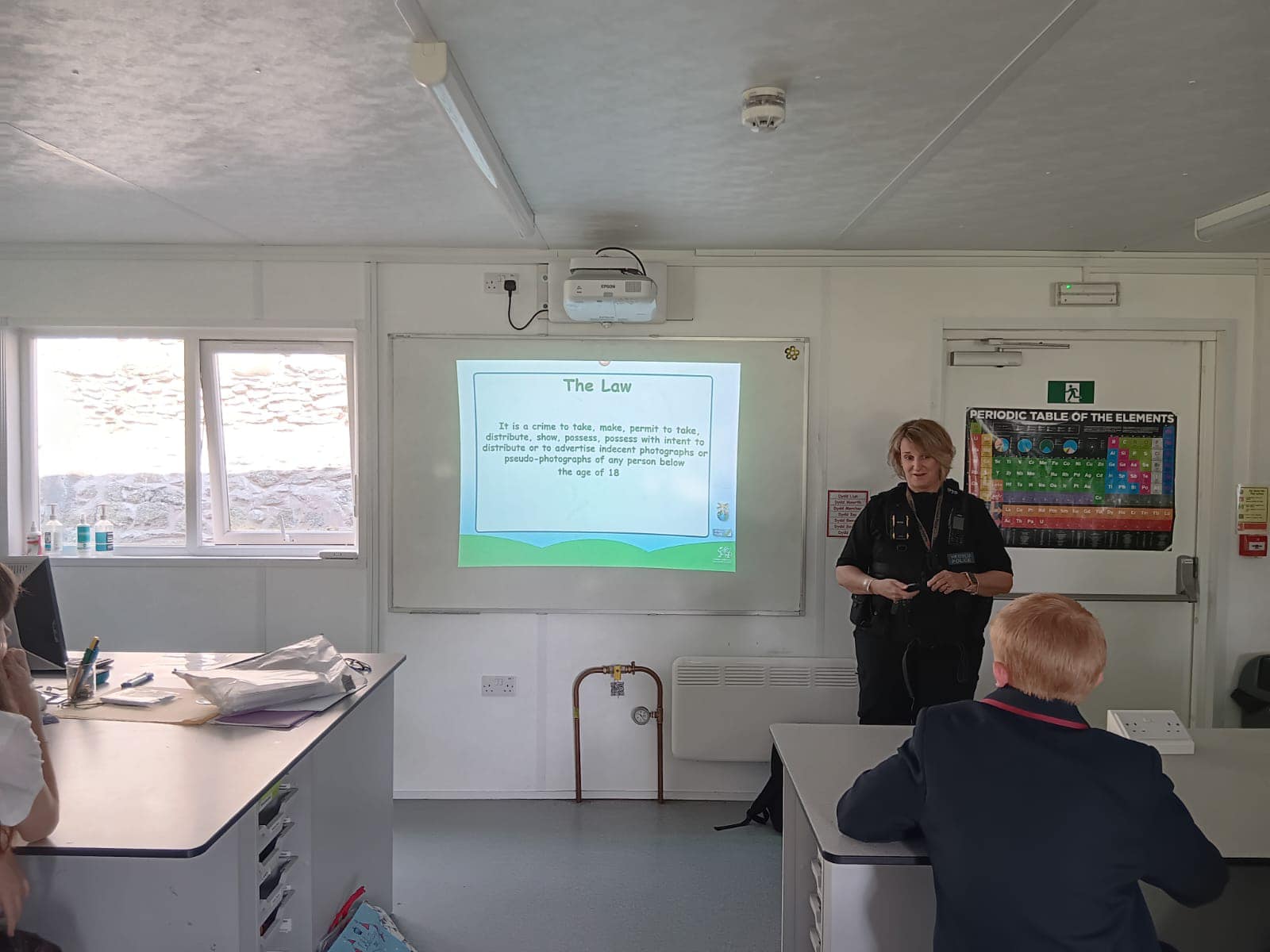
Personal, Social, & Health Education

PSHE delivered by the Police Liaison Officer
PSHE education helps children and young people to stay safe, healthy and prepared for life's challenges and opportunities.
PSHE is a school curriculum subject through which pupils develop the knowledge, skills and attributes they need to manage their lives, now and in the future.
PSHE education helps the pupils in Redhill High School to stay healthy and safe. It is also a subject that aims to prepare them for life – and work – in modern Britain.
PSHE also helps pupils to achieve their academic potential by making clear links between achievement and personal wellbeing.
PSHE is taught by a consistent group of teachers and overseen by the Wellbeing Coordinator, Anna Rue. All students receive a weekly PSHE session, and we also use external providers to deal with specialist issues e.g. Brook Education.
Summary of our PSHE Programme
Purpose & Aims
- The PSHE programme aims to equip students with the knowledge, skills and attributes they need to manage their lives, now and in the future — socially, emotionally, physically and economically.
- It supports the school’s broader goal of helping pupils stay healthy, safe and prepared for life and work, and links personal wellbeing with academic success.
- The curriculum is designed to ensure students leave not only with exam results, but with life-skills, resilience and sound values.
Curriculum Design & Themes
- The programme covers major thematic areas: health & wellbeing (including mental health, physical health, lifestyle), relationships (friendships, family, consent, digital relationships), and living in the wider world (citizenship, economics, world of work, personal finance).
- It follows a spiral approach: students revisit key themes with increasing depth as they progress through their years.
- It is supported by tutor time, assemblies and dedicated lesson slots, as well as by the school’s pastoral/counselling structures.
- A key feature is the emphasis on self-awareness, self-esteem, decision-making and reflecting on risks — thereby aligning PSHE with safeguarding, character education and personal development.
Implementation
- PSHE is integrated into the school’s formal timetable and is considered a core element of the curriculum rather than just an add-on.
- The small class sizes and close pastoral support at the school aid the delivery of PSHE in a personalised, supportive manner.
- The programme is responsive: it takes into account student voice, local context and the evolving nature of health, relationships and work in the 21st century.
- The school states that well-being is central: a key underpinning of their curriculum is that “students feel happy and safe” which provides the foundation for effective PSHE.
Impact & Rationale
- The PSHE programme contributes to building a calm, purposeful learning environment, with students who feel valued, listened to and empowered.
- By linking personal development to academic outcomes, it helps students realise that wellbeing underpins achievement.
- With structured, sequenced lessons and support mechanisms, pupils are better able to reflect on their lives, make informed choices and develop resilience for future challenges.